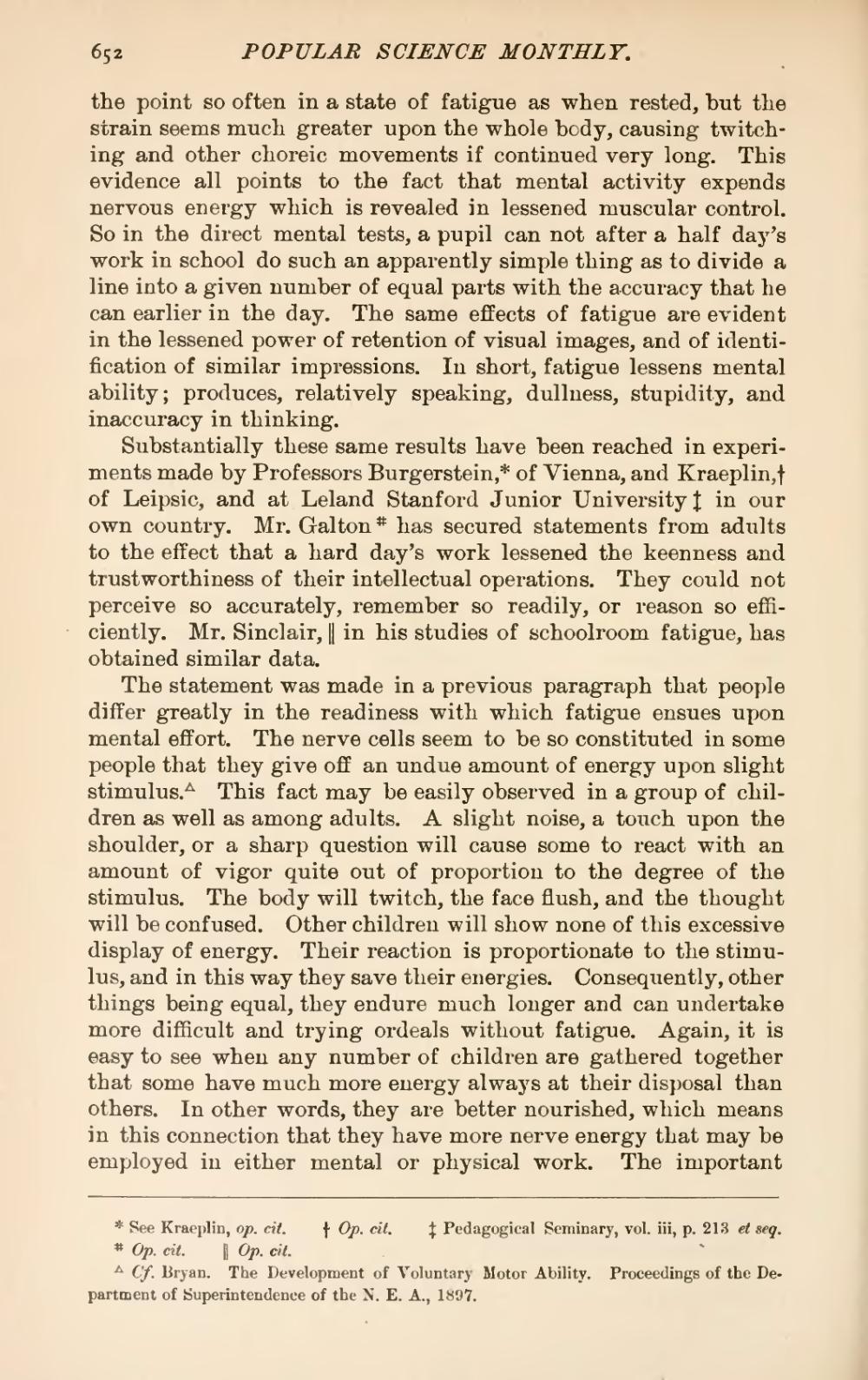the point so often in a state of fatigue as when rested, but the strain seems much greater upon the whole body, causing twitching and other choreic movements if continued very long. This evidence all points to the fact that mental activity expends nervous energy which is revealed in lessened muscular control. So in the direct mental tests, a pupil can not after a half day's work in school do such an apparently simple thing as to divide a line into a given number of equal parts with the accuracy that he can earlier in the day. The same effects of fatigue are evident in the lessened power of retention of visual images, and of identification of similar impressions. In short, fatigue lessens mental ability; produces, relatively speaking, dullness, stupidity, and inaccuracy in thinking.
Substantially these same results have been reached in experiments made by Professors Burgerstein,[1] of Vienna, and Kraeplin,[2] of Leipsic, and at Leland Stanford Junior University[3] in our own country. Mr. Galton[4] has secured statements from adults to the effect that a hard day's work lessened the keenness and trustworthiness of their intellectual operations. They could not perceive so accurately, remember so readily, or reason so efficiently. Mr. Sinclair,[5] in his studies of schoolroom fatigue, has obtained similar data.
The statement was made in a previous paragraph that people differ greatly in the readiness with which fatigue ensues upon mental effort. The nerve cells seem to be so constituted in some people that they give off an undue amount of energy upon slight stimulus.[6] This fact may be easily observed in a group of children as well as among adults. A slight noise, a touch upon the shoulder, or a sharp question will cause some to react with an amount of vigor quite out of proportion to the degree of the stimulus. The body will twitch, the face flush, and the thought will be confused. Other children will show none of this excessive display of energy. Their reaction is proportionate to the stimulus, and in this way they save their energies. Consequently, other things being equal, they endure much longer and can undertake more difficult and trying ordeals without fatigue. Again, it is easy to see when any number of children are gathered together that some have much more energy always at their disposal than others. In other words, they are better nourished, which means in this connection that they have more nerve energy that may be employed in either mental or physical work. The important
